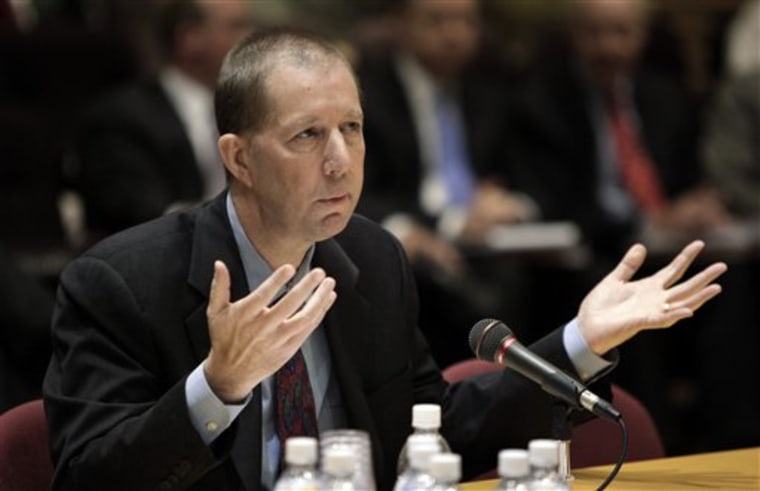The Obama administration plans to sell its shares in General Motors Co. and Chrysler Group LLC as soon as it can, the head of the autos task force told a congressional panel Monday.
"We are very eager to dispose of them as soon as possible," said Ron Bloom, now chairman of the Treasury Department task force overseeing GM and Chrysler. "On GM, our expectation of a GM IPO in 2010."
Bloom said the government would not sell all of its shares at initial public offerings as it could get more money following an IPO should shares of the company rise. He did not give a timetable on such a sale of GM or Chrysler stock.
The U.S. government owns 61 percent of the new General Motors and eight percent of Chrysler. The task force is overseeing the two companies because they have received $65 billion in federal aid.
New versions of both GM and Chrysler recently emerged from short stays in government-funded bankruptcy protection, cleansed of old debt and burdensome contracts.
Bloom would not articulate any particular financial or operational milestones GM or Chrysler have to reach before the government would cash out its stock.
"It's going to be based on the situation," he said, adding that success would be measured in the taxpayer's ability to get their money back.
GM's treasurer, Walter Borst, testified that GM would seek to repay its loans faster than the six-year timeframe outlined by the autos task force. He added that GM is now working on "fresh start" accounting measures that companies use to reorganize their books following a trip through bankruptcy court.
Jan Bertsch, senior vice president and treasurer for Chrysler, said the company would be able to service all of its debt.
"Our goal is to pay that back," she said of the government loans. "We see no issues paying it back."
Also at the hearing, Bloom denied that the government had coerced Chrysler's debtholders into dropping a legal protest that they were being treated unfairly in court. Some holders of $6.9 billion in secured Chrysler debt initially protested that they were being pushed behind unsecured creditors such as the United Auto Workers union's retiree health care trust.
But the debtholders dropped their protests after receiving $2 billion in cash to wipe out their debt.
Bloom said he spoke to former task force chief Steven Rattner, who denied making any threats to any of the lenders. Some of the lenders had received government money from the bank bailout program.
Rattner out, Bloom in
"Rattner stepped down from the task force on July 13 and was replaced by Bloom, a former United Steel Workers union official.
The administration said Rattner had decided to return to private life and his family in New York City. It remained unclear whether the departure had anything to do with the ongoing public corruption probe that has nibbled at Rattner's heels in New York.
Attorney General Andrew Cuomo and the Securities and Exchange Commission have charged a state official and a political consultant with extracting millions of dollars in kickbacks from investment firms trying to raise money from the state's big public pension fund.
The private equity firm Rattner led before joining President Barack Obama's administration, the Quadrangle Group, paid more than $1 million to one of the people indicted in the case, New York political consultant Hank Morris.
Rattner has declined to comment.
Rep. Jeb Hensarling, of Texas and a member of the Congressional Oversight Panel, said he was "disappointed" that a representative from the United Auto Workers union as well as the CEOs of GM and Chrysler were not present to testify.
"Now that it is time to account for the money, you don't see them today," he said.
GM and Chrysler appeared before Congress last December, asking for aid to save the companies from liquidation. Dearborn, Mich.-based Ford Motor Co. also went before Congress, but did not take government aid. CEO Alan Mulally has said that Ford would not be disadvantaged compared with GM and Chrysler's cost cutting deals with the UAW or by GMAC Financial Services, GM's auto financing company now controlled by the government.
At issue is whether GMAC would get more favorable loan rates than other auto financing companies, such as Ford Motor Credit. GMAC has received a total of $13.4 billion in government funding to make loans to car buyers and dealers.
Bloom said GMAC was still on equal footing with Ford Motor Credit, when it came to favorable loan terms.
"We are not aware of any rate discrepancies," he said.
